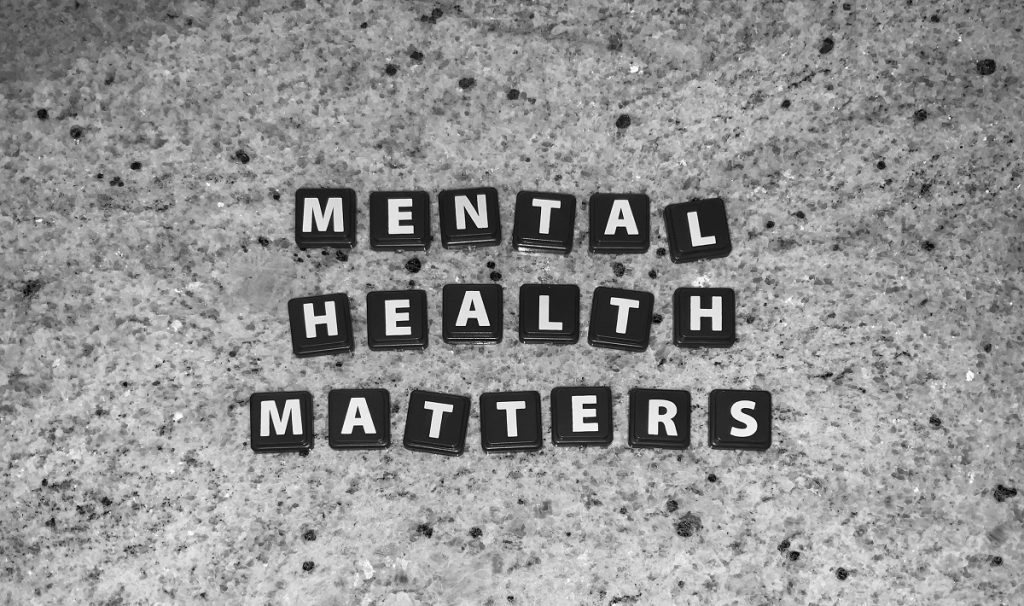Access to mental health services continues to be limited despite the rising number of people who have reported experiencing anxiety and depression. One of the most significant barriers is the high cost of conventional therapy and medications. It’s no wonder that more and more people have turned to natural alternatives, such as CBD. These alternatives provide a more affordable way to manage or reduce their symptoms.
We don’t encourage switching right away to CBD without knowing what it can do for you and how it may affect you. Therefore, this article will cover the potential benefits of CBD to your mental health. There will also be a quick discussion of the risks associated with its use and some helpful reminders if you have not yet tried these products before.
CBD and Mental Health
Before CBD went mainstream, some assumed it had similar psychoactive effects as its infamous cousin, THC (tetrahydrocannabinol). However, when the federal government removed it from its list of controlled substances, wellness companies and health enthusiasts acted quickly to eliminate the confusion. They began promoting CBD as an effective substitute for all the therapeutic effects of cannabis but without causing a “high.”
How is this possible?
Like the other cannabinoids naturally found in the cannabis plant, CBD can interact with the endocannabinoid system (ECS). If you’re not familiar with ECS, it’s a cell-signaling system associated with various physiological functions. ECS receptors can also be found in several key areas of the human body, such as the brain, immune cells, muscle tissues, and skin. Because of this, taking CBD may lead to experiencing a diverse set of therapeutic benefits, including:
- Treating epilepsy and seizures
- Reducing pain and inflammations
- Enhancing the body’s natural defense system
- Promoting healthy sleep-wake patterns
In addition, CBD has been linked to improved mental health. Let’s take a closer look at the positive impacts that this cannabinoid may have on our emotional stability, stress management, and anxiety level.
Anxiety Disorders
One of the earlier studies on the effects of CBD on mental health showed that it could address the symptoms of stress and anxiety exhibited by the rat subjects. A follow-up study in 2018 involving rats again indicated similar observations and further explained how CBD affects the processing of stress signals by the central nervous system.
Promising research involving human subjects has demonstrated the ability of CBD to lessen worries, discomfort, and cognitive issues faced by individuals with a fear of public speaking. The experts from a similar study in 2019 have noted the same effects among their subjects who did not have social phobia or other types of mental disorders.
In addition to social-based anxiety, a scientific review conducted in 2015 highlighted the pieces of supportive evidence for CBD as a treatment option for people who are suffering from:
- Generalized anxiety disorder
- Obsessive-compulsive disorder (OCD)
- Panic disorder
- Post-traumatic stress disorder (PTSD)
Despite these positive results, the researchers suggest further longitudinal studies and clinical trials to verify CBD’s therapeutic potential.
Alzheimer’s Disease
In general, cannabinoids have demonstrated their ability to reduce the behavioral and psychological symptoms associated with Alzheimer’s disease. However, the current studies cannot be considered conclusive proof because they are primarily small-scale and short-term.
In 2019, a review was conducted to evaluate the effectiveness of CBD and THC in preventing and treating individuals with this neurodegenerative disease. The researchers believe that CBD, in particular, may address specific symptoms, such as memory loss and behavioral issues. However, the team also stated that the combination of CBD and THC might lead to better results than using only one of these cannabinoids.
Depression
Serotonin is one of the primary hormones associated with mood regulation and feelings of happiness. Though CBD does not increase the serotonin level in the brain, it may produce antidepressant effects. This observation stems from the ability of this cannabinoid to influence the neural chemical receptors that absorb serotonin.

Moreover, a 2018 review notes that CBD may help in reducing depressive symptoms if they are triggered by stress. That means by promoting calm and relaxation, cannabidiol can improve the way we deal with the various sources of stress in our day-to-day life.
Again, further research must be performed to validate these observations.
Schizophrenia
THC can worsen the symptoms of schizophrenia, but CBD may help manage this mental disorder. A study conducted in 2021 involving young men compared the effectiveness of CBD versus an antipsychotic medication. The results indicate that both managed to improve the participants’ cognition, but CBD caused fewer adverse side effects.
In terms of psychosis, a review of three separate clinical trials states that two of the said trials resulted in CBD lessening the psychotic symptoms of the participants.
These studies are relatively small, so subsequent trials should be done on a larger scale to verify these initial findings.
Substance Abuse and Dependence
While some assume that CBD may lead to cannabis dependence, the WHO (World Health Organization) has declared that it does not have the same addictive properties as THC. Moreover, preliminary studies indicate that CBD may help break such problematic behaviors.
A group of researchers performed a review in 2015 and found that cannabidiol may be used for treating addictions to cannabis, opioid, and tobacco, among others. Another study in 2019 stated that CBD could reduce cravings for cocaine or meth. It also helped with some other symptoms triggered by a person’s withdrawal from these substances.
The CBD community continues to grow larger each day because of the supposed therapeutic benefits of hemp-derived products. While a handful of studies support some of the claims made by CBD brands, we still have plenty to explore to get a comprehensive understanding of CBD’s role in treating and improving our mental health.
Proceed with Caution
If you would ever consider taking CBD for whatever reason, we encourage you to be careful every step of the way. Yes, this method is likely cheaper than booking an appointment with a counselor or therapist. However, the risks you will be putting yourself in by skipping this step will not be worth the money to be saved.
The FDA recommends learning more about cannabinoids before taking them, too. In one of their consumer guides, they provided a rundown of the known risks of using CBD.
- Prolonged use may be harmful to the liver
- Taking a large dose can cause mild, adverse side effects, such as irritability, diarrhea, changes in appetite, and drowsiness
- The drug interactions between CBD and other medicines may reduce the effectiveness of the latter
Selecting CBD brands to trust can also be quite tricky. The FDA has warned some for making unverified health claims about their respective CBD products. Companies that cut corners don’t practice safe manufacturing processes, too.
Make sure you prevent risking your health and wasting your money on potentially harmful or ineffective CBD products. Experts encourage all consumers to look for the product’s COA (certificate of analysis) generated by a third-party laboratory. Remember to pay attention to reviews from actual customers to get insights on what you can expect.
Final Thoughts
Good mental health doesn’t have to be restricted to those who can afford therapies and medications. CBD offers an alternative way to treat or manage certain mental disorders and their symptoms. What we know so far sounds promising for many. However, you don’t have to join the trend just because everyone else seems to be taking hemp-derived products.
The post How CBD May Provide Support for Your Mental Health appeared first on CBD Product Reviews and Information – Everything About Cannabidiol.




















